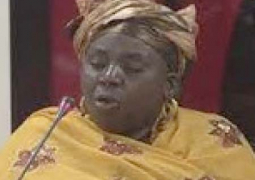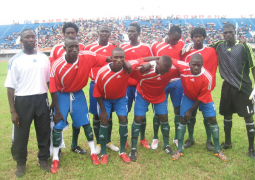Courts are independent in the exercise of their functions, a power, which guarantees for citizens the right to a just and fair trial. They are places of respect and dignity hence the expression temples of justice.
These remarks were made by Swaibou Conateh proprietor of Gambia News and Report Magazine at the third day training of court reporters held at the Gambia Press Union head office in Bakau. Mr Conateh explained that access to our courts by the people and in like manner by journalists, constitutes one of the fundamental pillars of a democratic way of life. This dichotomy of free press and free trials is an important cornerstone to the continued survival of our right to have justice and not to become victims of the arbitrary use of power. He said open courts and press access to cover and report proceedings are a guarantee against unfair trials such as could happen in situations where the trial takes place in-camera. This, he indicated, works both ways, for people to know that their wrong doings will be published in the media to become the common property of all. " Such publicity is not welcome by those affected and is one of the outcomes which ensure fair play among citizens and respect of law thereby assuring justice in society," he added.
Mr Conateh said that besides the commercial attractions of reporting the courts, writing about criminal cases or civil ones with verdicts rendered by judges and magistrates, is a vital contribution of media to justice and democracy as well as the protection of individual citizens against arbitrary trials such as can happen in trials conducted behind doors. " The court reporter therefore has an important constitutional role to play in society," he adduced. He adduced that it makes it necessary for those journalists covering the courts to be fully knowledgeable, adding that they do not have to be lawyers, but they should know enough about the set up of the courts and legal jargon to be able to function with ease.
For his part Sam Sarr, Editor of Foroyaa Newspaper, said a journalist should never lose sight of the fundamental principles of journalism, in particular, the right of the public to. He noted that it is in recognition of this that the constitution has provided for a transparent court system. Thus it is that all court proceedings " shall be held in public." He said the public do not have the time to attend every court proceeding and therefore rely on the media for information. " It is therefore the responsibility of the media to attend court proceedings that are of interest to the public and disseminate accurate and fair reports of the proceedings," he noted.
Mr Sam Sarr further asserted that a good court report is not a mere regurgitation of statements made by counsel or judge. " It is a vivid picture of developments relating to the case including the mood of the court, the public and the relatives," he revealed. He said the reporter must capture the essence of the case, stating that every judge relies on the facts of a case and the relevant law. " The facts are obtained from the evidence, the testimonies of the witnesses and material evidence," he concluded.





